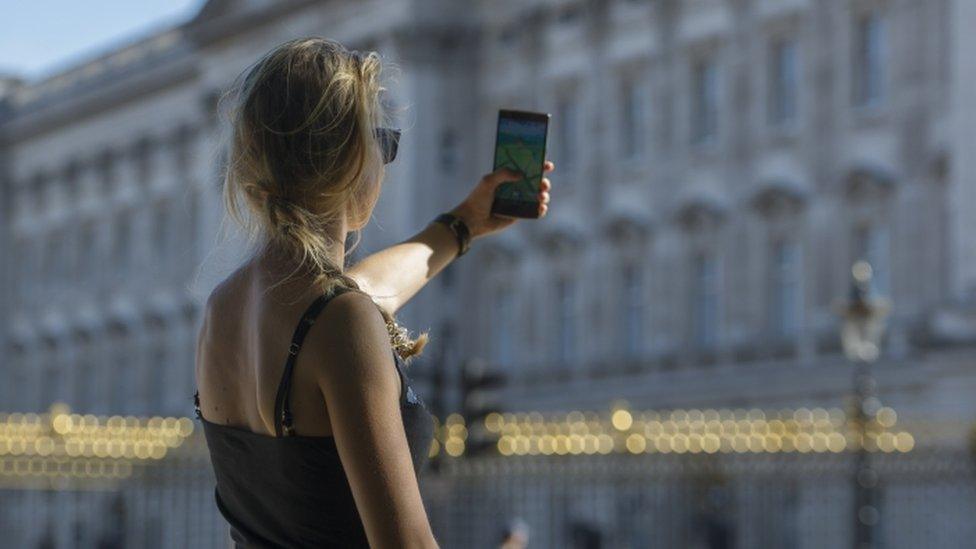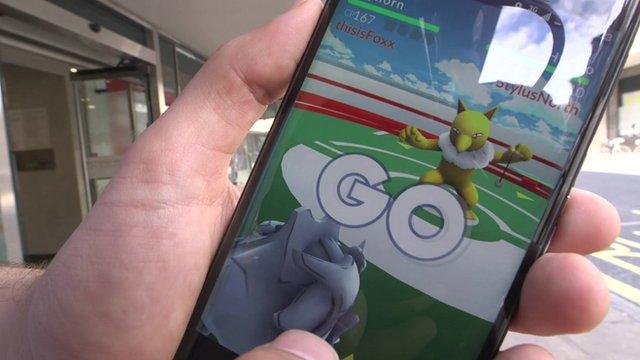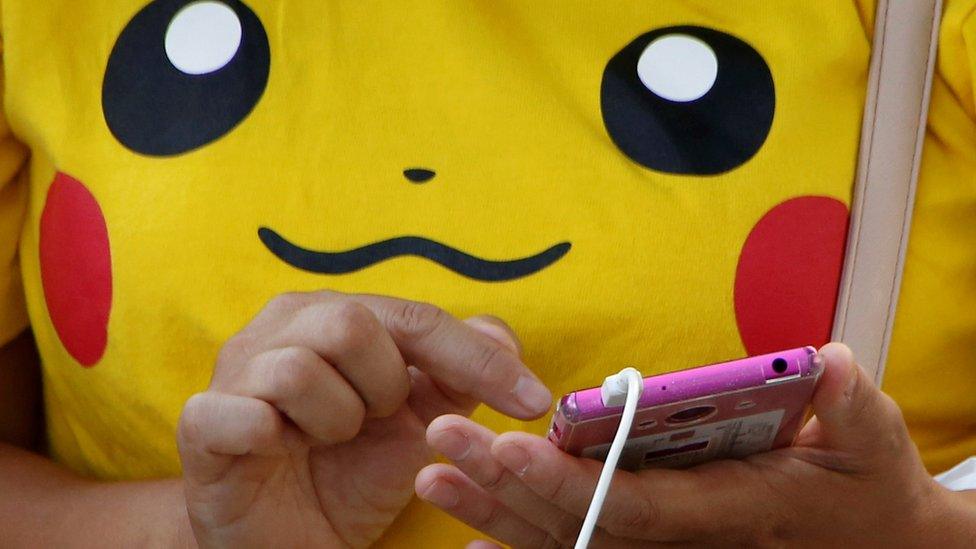Pokemon Go: Exercise impact 'short-lived'
- Published

As cynics derided the popularity of Pokemon Go a few months ago, some tried to seek out the positives.
Sure, hundreds of millions of players were wandering around, eyes glued to smartphones, putting their energies into "catching" imaginary creatures in the augmented reality game.
And yes, okay, maybe the quest to "catch 'em all" meant they occasionally strayed into less-than-appropriate locations. Like Holocaust museums.
The risk of being so distracted while playing that you hurt yourself, or others, also proved very real.
But at least, said optimists, those players were getting a bit of exercise while doing it.
Now though, a study from Harvard University, published in the British Medical Journal, external suggests that the fitness boost was a short-lived phenomenon.
'Moderate' impact
Pokemon Go requires players to take to the streets to try to catch on-screen monsters like Pikachu and Snorlax in real-world locations.
And researchers found that keen players walked an average of an extra 955 steps a day in the first week of using the game.
But it seems additional exertion soon dwindled, and by week six participants were taking no more steps than they had been before they downloaded the game.
"Pokemon Go has been suggested to improve public health by promoting physical activity. In our study population, however, the results indicate that the health impact of Pokemon Go might be moderate," the authors of the report wrote.
The BBC's Chris Foxx took to the streets to explore some of the app's highs and lows
"Interventions designed to increase walking typically increase the number of steps by 2,500 daily. Even if smaller amounts of physical activity might also be important for health outcomes, the increase in steps from Pokemon Go, as with many physical activity interventions was not sustained over time.
"Pokemon Go might also entail risks, such as injuries and road traffic incidents," they add.
The study looked at 560 avid Pokemon Go players who had achieved "trainer level" of five or higher. Their behaviour was compared with more than 600 people who had not downloaded the app.
All involved were in the US, aged between 18-35 and using an iPhone 6 - which automatically records the number of steps a phone user takes.
'Huge potential'
The study did not explore the reason for the drop off - though one reason is likely to be players quitting the game completely or the novelty wearing off.

Pokemon Go creators recently introduced an update to the game to try and revive interest
Although Pokemon Go smashed download records and sparked a global craze when it launched in July, it soon fell from the top of app charts as downloads plunged and many players stopped buying in-game coins.
With the proliferation of smartphones in both developed and developing economies, policymakers are keen to explore how games can be used to help improve physical and mental health
And Katherine Howe, co-author of the Harvard University research told The Guardian, external that despite the results of their study, there was still a "huge potential" for augmented reality games to be beneficial to health.
"They give us a reason to go outside, walk and socialise," she said. "So I think there is a huge potential to develop these games to not only increase physical activity but also boost mental wellbeing, mood and social interaction for people of all ages."
- Published11 July 2016

- Published12 December 2016

- Published12 July 2016
